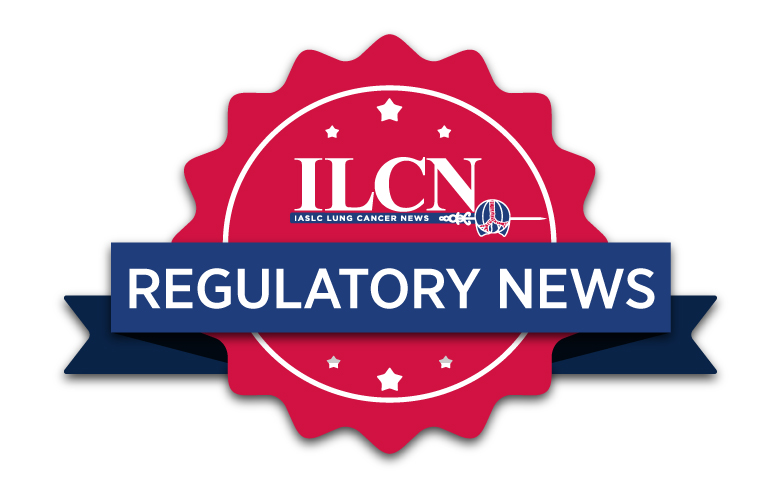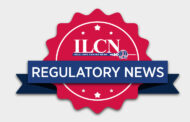US FDA Approves Neoadjuvant-Adjuvant Pembrolizumab for Resectable NSCLC and Encorafenib with Binimetinib for Metastatic NSCLC with BRAF V600E Mutation

On October 16, the US Food and Drug Administration (FDA) approved pembrolizumab with platinum-containing chemotherapy as neoadjuvant treatment with continuation of single-agent pembrolizumab as adjuvant treatment for resectable (tumors ≥4 cm or node positive) non-small cell lung cancer (NSCLC).1
The approval was based on efficacy data from KEYNOTE-671, a multicenter, randomized, double-blind, placebo-controlled trial in 797 patients with previously untreated and resectable Stage II, IIIA, or IIIB NSCLC. Patients were randomized (1:1) to either pembrolizumab or placebo, with platinum-based chemotherapy, every 3 weeks for 4 cycles followed by either continued single-agent pembrolizumab or placebo, every 3 weeks for up to 13 cycles.
The primary endpoints were overall survival (OS) and event-free survival (EFS). Median OS was not reached in the pembrolizumab arm and was 52.4 months for those receiving placebo. Median EFS was not reached in the pembrolizumab arm and was 17 months in the placebo arm.
The neoadjuvant pembrolizumab approval came on the heels of the FDA’s approval of encorafenib with binimetrinib for metastatic NSCLC with BRAF V600E mutation, as detected by an FDA-approved test.2
In conjunction with that approval, the FDA also approved the two companion diagnostic tests for encorafenib with binimetinib: FoundationOne Liquid CDx (plasma) and FoundationOne CDx (tissue). If no mutation is detected in a plasma specimen, the tumor tissue should be tested.
The approval of encorafenib with binimetrinib was based on data from PHAROS, an open-label, multicenter, single-arm study of 98 patients with metastatic NSCLC with BRAF V600E mutation. Prior BRAF or MEK inhibitors were not allowed. Patients received encorafenib and binimetinib until disease progression or unacceptable toxicity.
The major efficacy outcome measures were objective response rate (ORR) and duration of response (DoR). Among 59 treatment-naïve patients, ORR was 75% (95% CI: 62, 85); median DoR was not estimable (NE) (95% CI: 23.1, NE). Among 39 previously treated patients, ORR was 46% (95% CI: 30, 63) with a median DoR of 16.7 months (95% CI: 7.4, NE).
FDA Advisory Committee Rejects Sotorasib for KRAS G12C-Mutated NSCLC Over Data Interpretation Concerns
On October 5, the FDA’s Oncologic Drug Advisory Committee met to discuss the supplemental new drug application for sotorasib for the treatment of patients with KRAS G12C mutated NSCLC.
The committee voted (10 to 2) against the application, citing concerns that ultimately led to the group to conclude that the progression-free survival (PFS) benefit of sotorasib could not be reliably interpreted compared to docetaxel based on data from the CodeBreak 200 study of patients with KRAS G12C-mutated locally advanced or metastatic NSCLC.
The committed reported that an FDA review team investigated multiple sources of potential systemic bias in the trial. According to meeting materials, the FDA observed the following:
- Asymmetric early dropout, with greater dropout on the docetaxel arm,
- Investigator assessments of progressive disease (PFS) favoring the sotorasib arm, and
- Crossover from docetaxel to sotorasib before assessment of disease
progression.
The applicant, Amgen Inc., Thousand Oaks, California, proposed converting the supplemental new drug application to a full approval based the confirmatory study. However, Ravi Madan, MD, senior clinician at the National Cancer Institute, said during the meeting that the question before the committee that day was not one of the efficacy of sotorasib in lung cancer, but rather, “the ability to interpret data from a relatively small clinical trial conducted with a highly anticipated agent in a hyper information age where both patients and providers had high expectations.”
Takeda Announces Withdrawal of Mobocertinib
Also in early October, Takeda announced that following discussions with the FDA, it will work with the agency to voluntarily withdrawal mobocertinib in the US for adult patients with EGFR exon20 insertion mutation-positive locally advanced or metastatic NSCLC whose disease has progressed on or after platinum-based chemotherapy.4
In a statement, Takeda said it also intends to initiate voluntary withdrawal globally where mobocertinib is approved. The company is working on next steps with regulators in countries where it is currently available.
This decision was based on the outcome of the Phase 3 EXCLAIM-2 confirmatory trial, which did not meet its primary endpoint and thus did not fulfill the confirmatory data requirements of the accelerated approval granted by the FDA nor the conditional marketing approvals granted in other countries.
The EXCLAIM-2 trial was a phase 3, multicenter, open-label study designed to investigate the safety and efficacy of mobocertinib as a monotherapy versus platinum-based chemotherapy in first-line EGFR Exon20 insertion+ locally advanced or metastatic NSCLC.
Takeda’s head of Global Medical Affairs in Oncology Awny Farajallah, MD, said in the statement, that he hoped the findings from EXCLAIM-2 will inform future research and development for this patient population.
References
- 1. FDA approves neoadjuvant/ adjuvant pembrolizumab for resectable non-small cell lung cancer
- 2. FDA approves encorafenib with binimetinib for metastatic non-small cell lung cancer with a BRAF V600E mutation
- 3. Oncologic Drugs Advisory Committee (ODAC) Meeting. FDA website. October 5, 2023
- 4. Takeda Provides Update on EXKIVITYâ (Mobocertinib)



